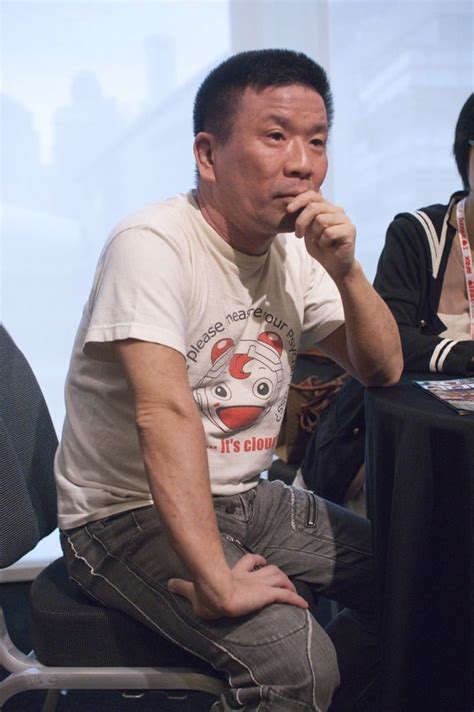A Quote by Andrew Sean Greer
Perhaps love is a minor madness. And as with madness, it's unendurable alone. The one person who can relieve us is of course the sole person we cannot go to: the one we love. So instead we seek out allies, even among strangers and wives, fellow patients who, if they can't touch the edge of our particular sorrow, have felt something that cuts nearly as deep.
Related Quotes
I went from one to the other holding my sorrow - no, not my sorrow but the incomprehensible nature of this our life - for their inspection. Some people go to priests; others to poetry; I to my friends, I to my own heart, I to seek among phrases and fragments something unbroken - I to whom there is no beauty enough in moon or tree; to whom the touch of one person with another is all, yet who cannot grasp even that, who am so imperfect, so weak, so unspeakably lonely.
Training is needed in order to love properly; and to be able to give happiness and joy, you must practice DEEP LOOKING directed toward the other person you love. Because if you do not understand this person, you cannot love properly. Understanding is the essence of love. If you cannot understand, you cannot love. That is the message of the Buddha.
There's something in us that is very much attracted to madness. Everyone who looks off the edge of a tall building has felt at least a faint, morbid urge to jump. And anyone who has ever put a loaded pistol up to his head... All right, my point is this: even the most well-adjusted person is holding onto his or her sanity by a greased rope. I really believe that. The rationality circuits are shoddily built into the human animal.
In this century the writer has carried on a conversation with madness. We might almost say of the twentieth-century writer that he aspires to madness. Some have made it, of course, and they hold special places in our regard. To a writer, madness is a final distillation of self, a final editing down. It's the drowning out of false voices.
We have forced everyone to go into marriage because of love. Because you cannot love outside it, so we have unnecessarily forced love and marriage to be together - unnecessarily. Marriage is for deeper things - even more deep: for intimacy, for a "co-inherence," to work on something which cannot be done alone, which can be done together, which needs a togetherness, a deep togetherness. Because of this love-starved society, we fall into marriage out of romantic love.
The sympathies of a well-adjusted person can easily be aroused by the plight of strangers. Indeed, the skillful writer of a novel, a play, or an opera can engage our emotions on behalf of people who are not only strangers to us, but who do not even exist! And a person whose emotions cannot be so aroused is not behaving normally.
Even in such a time of madness as the late twenties, a great many man in Wall Street remained quite sane. But they also remained very quiet. The sense of responsibility in the financial community for the community as a whole is not small. It is nearly nil. Perhaps this is inherent. In a community where the primary concern is making money, one of the necessary rules is to live and let live. To speak out against madness may be to ruin those who have succumbed to it. So the wise in Wall Street are nearly always silent. The foolish thus have the field to themselves. None rebukes them.
I suspect that many of us, if given the chance to make one person in our lives love us more, would have no trouble in choosing where to point a finger. We are all needy, all vulnerable, all terrified that perhaps that person has an excellent reason to withhold affection. We shape our purposes to make ourselves worthy and often do not see until much later how it was love-or perhaps the lack of it-that both picked us up and dropped us off at crossroads.






































